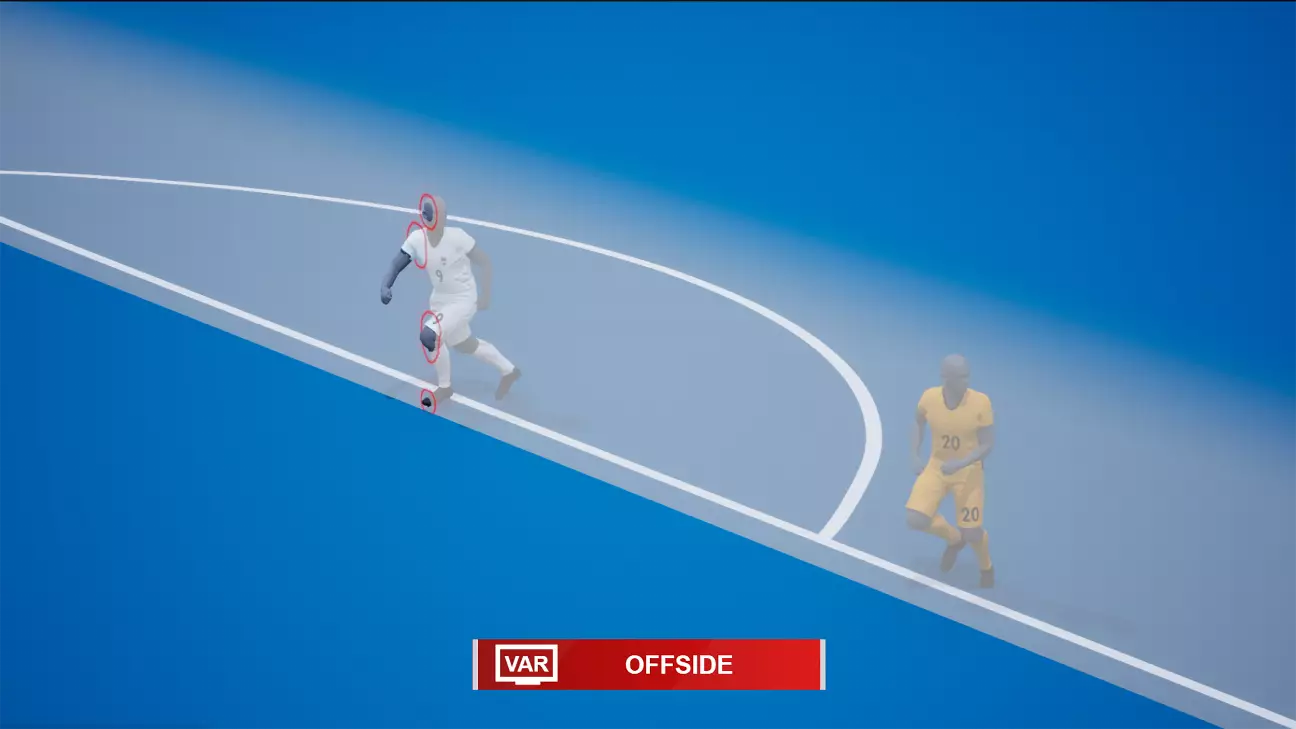The Premier League has long been at the forefront of football innovation, but its delay in adopting semi-automated VAR offside technology (SAOT) has raised eyebrows among fans, clubs, and analysts alike. Originally anticipated to be deployed by October of this year, reports from the latest Premier League shareholders’ meeting suggest that the implementation might be postponed until at least 2025. This decision reignites the debate surrounding VAR’s effectiveness and the need for its technological enhancements.
SAOT has generated excitement as a potential game-changer for officiating in football. It aims to streamline the process of reviewing offside calls by reducing the average check time by approximately 31 seconds. The technology utilizes advanced imaging and AI techniques to more accurately determine offside positions without the manual intervention currently required by referees and their teams. This shift from manual to automated processes promises not only to speed up the game but also to reduce human error—an ongoing concern in officiating.
With the recent turmoil in officiating decisions, clubs voted unanimously in favor of SAOT, ostensibly recognizing its potential to enhance the integrity of the game. Notably, Serie A and LaLiga have already transitioned to this innovative system, offering a stark contrast to the Premier League’s hesitance. Early adopters have reported improved accuracy and a more visually coherent way of communicating offside decisions, suggesting that introducing SAOT could foster much-needed confidence among players and fans alike.
The Premier League has faced an array of controversies stemmed from incorrect offside calls in recent seasons. These incidents have highlighted the limitations of the current VAR system. In February 2023, errors in identifying offside players led to significant goals being disallowed, stirring frustration among clubs and their supporters. Leicester City’s manager, Steve Cooper, recently lamented an “awful human error” during a critical match against Crystal Palace, underscoring the dire need for improvement in officiating standards.
The response from the Premier League to Cooper’s claims emphasizes the complexities associated with VAR technology: it’s not solely about the hardware and algorithms; there’s also a significant human element involved. This raises the question: can SAOT truly solve the problems that plague VAR, or will shortcomings remain, particularly concerning communication among officials?
Despite optimism from various leagues, the Premier League remains cautious. Extensive testing of SAOT over the last season revealed that the technology isn’t quite ready to be rolled out in live matches. This is a prudent stance considering the stakes involved—matches can hinge on a single offside decision. Ensuring that the technology is thoroughly vetted before its implementation is paramount not only for the game’s integrity but also for maintaining trust among stakeholders.
Moreover, the aspect of human oversight cannot be disregarded. Even with advanced technology, communication errors—or misinterpretations—can still occur, as evidenced in the case of Luis Díaz’s disallowed goal against Tottenham. Such incidents cast doubt on whether a shift to SAOT alone will fundamentally change the officiating landscape.
As the Premier League navigates the complexities of integrating SAOT, it faces a unique set of challenges. Support for the technology exists among clubs, but confidence in its reliability is paramount for a league that prides itself on being a global leader in football. With the European competitions setting precedents, the pressure is mounting for the Premier League to follow suit.
Ultimately, the question remains whether the league will embrace these new innovations in a timely manner. While technology undoubtedly holds the promise of enhancing the purity of the game, the responsibility to deliver on that promise lies in the careful implementation and ongoing evaluation of these systems.
While the delay in the adoption of semi-automated VAR offside technology presents a setback, it offers an opportunity for reflection and improvement. The Premier League’s commitment to ensuring that any introduced technology is foolproof could lead to a more trustworthy officiating system—one that aligns with the aspirations of clubs, players, and fans for the future of football.

Leave a Reply